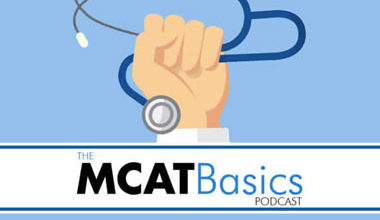Dr. Ziggy Yoediono is joined today by Jane, a recent med school applicant. They will be discussing Jane’s experience with the traditional interview process and her tips for success.
[1.00] What surprised you about the process?Jane found the interview days to be longer than expected. You need constant, full engagement.
[3.05] What did you do to keep your energy up?Jane took time to disengage somewhere quiet. She also recommends caffeinating beforehand instead of throughout.
[4.15] What advice do you have for time management and scheduling for the interviews?She front-loaded her medical courses, allowing for lighter class load later. She also tried to find flexible courses. Schools had no real flexibility for scheduling; the windows were often only a few days, so it was integral to have flexibility.
[8.00] How did you prepare? What worked and what didn’t?Jane researched the most common questions, prepping answers to be succinct in advance and considered what interviewers were trying to gain. She found her answers sounding too rehearsed and overcame this by taking mock interviews with a variety of different interviewers.
[15.10] What did you find to be the most challenging questions?Being asked ‘Why medicine?’ as it was sometimes phrased in an unexpected way. Typical questions were often asked atypically and would catch her off guard.
[18.00] What is your advice for asking quality questions?Be prepared and aim for more open-ended questions. Tailor your questions to the interviewer.
[21.10] What advice would you give regarding an interview with a student over a faculty member?Jane felt more comfortable with a student but you should always remember to be as respectful as you would with a physician. They are still evaluating you and looking at how you would interact with future classmates.
[23.40] How did you deal with anxiety during interviews?Remember that it is normal. Preparation is the key to overcoming your nerves. Interviewers are there to help you and want to bring out the best in you.
[27.55] What do you do if your mind goes blank?Jane recommends honesty and letting your interviewer know that you would like a second to consider your answer. Thoughtful answers are better than blurting out the first thing you think of.
[31.20] What advice would you give regarding an unfriendly or unresponsive interviewer?You can’t control who you are paired with, and they most likely behave that way with everyone. It is possible they are instructed to act a certain way.
[34.07] What final advice would you give?Jane recommends practicing active listening to better answer questions, and to relate answers to the interviewer. Write thank you notes right away, and if that isn’t possible, make notes about what you talked about in order to personalize them later.

